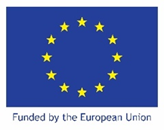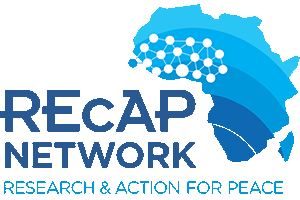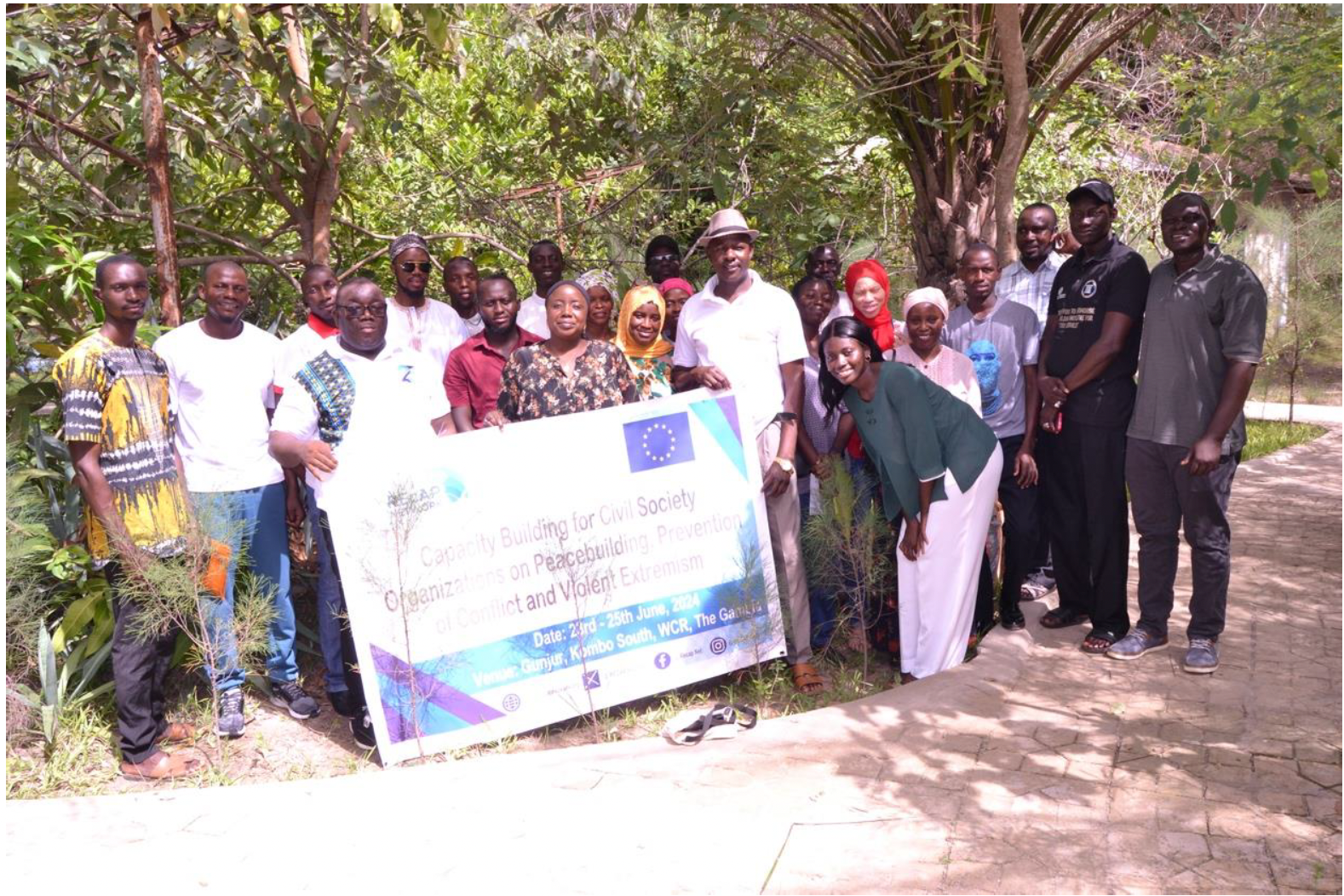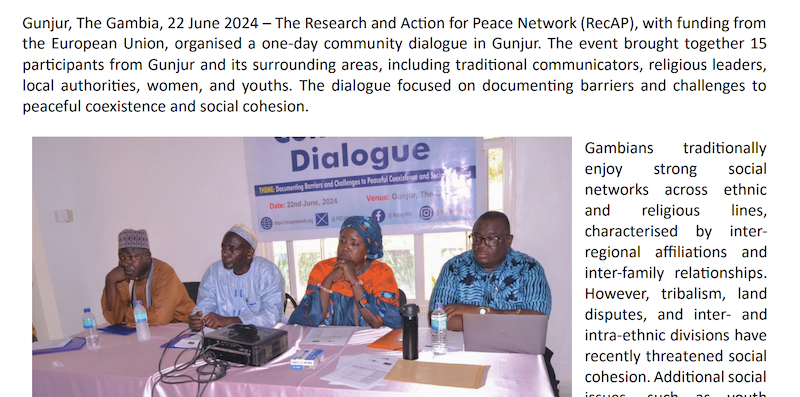Bongo-Soe, Northern Ghana – 7 September 2023: The REcAP consortium comprising WANEP (West Africa Network for Peacebuilding),
DRC (Danish Refugee Council), and SIPRI (Stockholm International Peace Research Institute), with funding from the European Union
organised a community dialogue on 7 September 2023. The aim was to foster social cohesion and peaceful coexistence in the Bongo-Soe community.
This dialogue brought together 15 participants from Community-Based Institutions, including traditional and religious authorities,
local peace structures, representatives of Civil Society Organisations, women and youth groups, as well as members of the REcAP Network.
Bongo-Soe, a community nestled in the Bongo district of the Upper East Region of Ghana is situated on the border with Burkina Faso.
Its proximity
to this border has made it vulnerable to the specter of violent extremism. The district is also home to a diverse population from
different ethnic backgrounds, including the Fulbe (Fulani) ethnic group, with intermittent transhumance activities that often trigger
conflicts between farmers and herders. While the community has historically been peaceful, there are underlying issues that have
hindered harmonious coexistence and social cohesion.
Apart from the farmer-herder conflicts, there are other prominent issues affecting the community, causing strained relations between
the Paramount Chief of the Bongo traditional area and the Divisional Chief of Bongo-Soe. The discord has led to divisions within the
community, particularly between the Fulbe Chief and his followers and the Paramount Chief and the local Chief.
Deep-seated social, cultural, and historical factors have alienated the local Chief and some of the indigenous people within their
own community. This estrangement is marked by a lack of effective channels of communication or dialogue to address mistrust and
cross-ethnic grievances. The absence of mechanisms for addressing grievances, punctuated by mutual accusations and counter-accusations,
culminated in reprisal attacks on the Fulbe communities following the alleged rape of a native woman by a Fulbe member.
This retaliatory violence resulted in the arrest of 11 natives by the Ghana Police Service. In the wake of the attacks, a
section of community leaders held a press conference, urging authorities to remove the Fulbe from the Soe community.
The Upper East Regional Peace Council intervened to mediate the conflict, but the concerns raised by both parties remained unresolved.
As part of the dialogue, the REcAP team conducted preliminary engagements with the community stakeholders to deepen understanding of the
pertinent issues and to facilitate productive discussions during the dialogue session.
The dialogue session in Bongo-Soe has been regarded by participants as timely intervention to help address some of the long-standing drivers
of conflict in the community. It created a safe space to engage key community stakeholders to finding common solutions to the identified issues
and challenges. It also provided an opportunity to deeply analyse the origins and dynamics of the conflicts, enhancing understanding of some
of factors and triggers of conflict that could disrupt social cohesion and peaceful coexistence in the community. The key issues affecting
social cohesion, types of conflicts and conflict drivers were documented for the purpose of evidence-based advocacy at national and regional
levels. Participants arrived at priority actions, as well as the roles and responsibilities of various stakeholders in addressing common
concerns and challenges. They reached a consensus on post-dialogue plans to implement these priority actions.
During the event, Mrs. Levinia Addae-Mensah, Deputy Executive Director of WANEP, underscored the core mission of REcAP, which is to complement
existing peacebuilding endeavours in Bongo-Soe. This is achieved through the documentation of the community members’ experiences, encompassing
both challenges and opportunities. This documentation serves as a vital foundation for identifying enduring solutions to the prevailing issues.
Additionally, Mr. Ali Anankpieng, Executive Secretary of the Upper East Regional Peace Council, shared a perspective that resonates strongly with
the collective spirit of the event. He emphasised that in the relentless pursuit of peace, there are no bounds to what can be achieved,
and greater involvement of stakeholders strengthens the collective resolve for success.
As the community takes these crucial steps towards reconciliation and sustainable peace, there is hope that the collaborative efforts of
the various stakeholders will pave the way for a more harmonious future in Bongo-Soe, where all residents can coexist peacefully and thrive
together.





